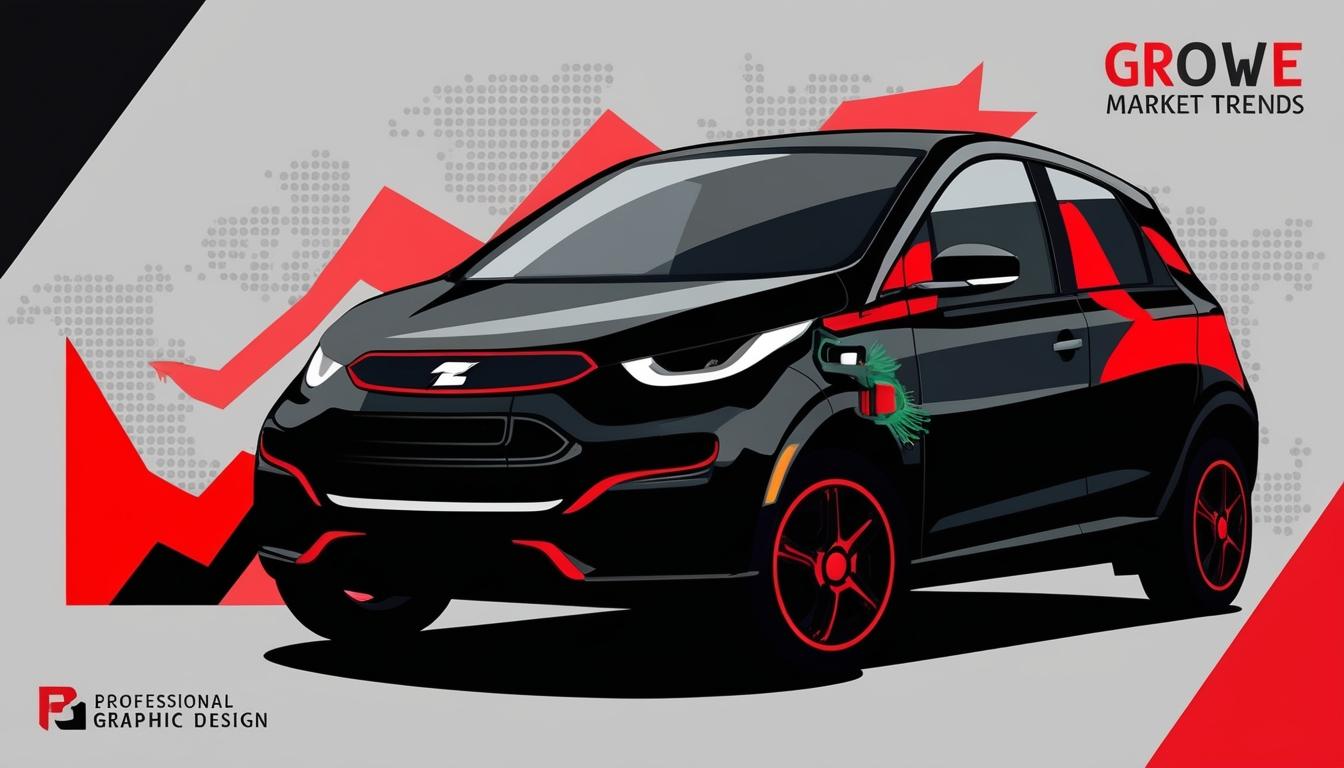This week, the automotive landscape is buzzing with significant developments, highlighting trends in electric vehicle (EV) sales, market challenges, and the integration of technological advancements within the industry.
General Motors (GM) reported a substantial increase in its EV market share, concluding 2024 with a 4% rise in U.S. sales, bringing its total to 2.7 million vehicles—the highest figure since 2019. The company's market share is estimated at 16.5%, buoyed by a diverse lineup that includes both electric and traditional gas-powered vehicles. This performance underscores GM's successful penetration into the electric vehicle market, catering to a growing consumer base interested in sustainable transportation options.
Ford, another major player in the automobile sector, is anticipated to transition into 2025 with impressive momentum. According to the latest quarterly and annual sales figures, Ford outperformed the industry growth rate with a 17% spike in retail sales in the fourth quarter, culminating in an overall 6% growth for the year. The manufacturer attributed this success to record EV sales and gains in its truck segment, notably from the luxury Lincoln brand.
Amid the competitive landscape, Stellantis aims to rejuvenate its sales through the redesigned Ram Heavy Duty trucks. The revamped 2025 models of the Ram 2500 and 3500 are equipped with powerful new 6.7-liter Cummins High-Output Turbo Diesel engines, delivering 430 horsepower and 1,075 foot-pounds of torque. This redesign comes as Stellantis contends with a three-year sales downturn, positioning the heavy-duty trucks as potential solutions for consumers seeking performance-driven options for work.
In a political context impacting the automotive landscape, Canadian Prime Minister Justin Trudeau announced his resignation on January 6, 2025, after nearly a decade in office. His departure, coupled with the prorogation of Parliament until mid-March, raises concerns for Canada's automotive sector, especially in light of tariff threats from the Trump administration. Observers are scrutinising how these developments might affect trade policies and market stability in the region.
In a notable collaboration, Sony and Honda have joined forces to launch the Afeela 1 EV, set to debut in mid-2026 with a starting price of $89,900. This venture is facilitated through their partnership under Sony Honda Mobility (SHM), combining Honda's manufacturing prowess with Sony's technology advancements to unsettle the automotive industry with next-generation electric vehicles.
Meanwhile, the affordability crisis in the auto market persists, with new car payments reaching an all-time high in the fourth quarter of 2024. Recent data from Edmunds indicates that nearly 20% of new-car shoppers are facing monthly payments of $1,000 or more, a trend that raises questions about consumer access and overall market health.
As industry leaders prepare for the upcoming NADA show, the focus on innovation is paramount. Kevin Frye, the Marketing Director at Jeff Wyler Automotive Family, spoke to CBT News about the transformative impact of artificial intelligence (AI) and customer data platforms (CDPs) on dealership operations. Frye's insights reflect a broader industry trend towards leveraging technology to improve customer interactions and operational efficiency.
Private equity's role in automotive retail is also highlighted, with Franchise Equity Partners providing unique investment approaches aimed at helping dealerships scale and adapt amidst market changes. The conversation, featuring insights from experts in the field, underscores the strategic importance of private equity in fostering growth within the sector.
As anticipated discussions unfold at the 2025 J.D. Power Auto Summit, dealers are gearing up for insights that will shape their operational strategies moving forward. Doug Betts, president of the Global Automotive Division at J.D. Power, shared expectations for the summit, indicating a wealth of knowledge on forthcoming industry trends that attendees can expect to gain.
The week encapsulates a blend of growth, challenge, and innovation within the automotive industry, as companies navigate the ever-evolving marketplace marked by significant technological advancements and shifting consumer demands.
Source: Noah Wire Services
